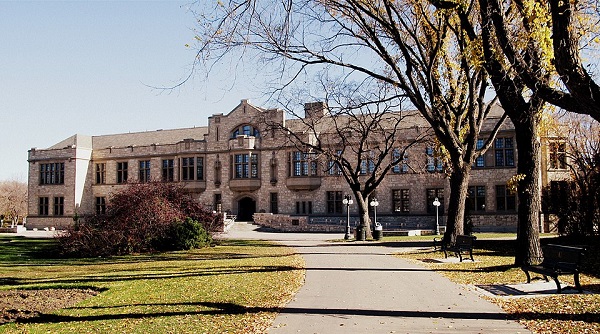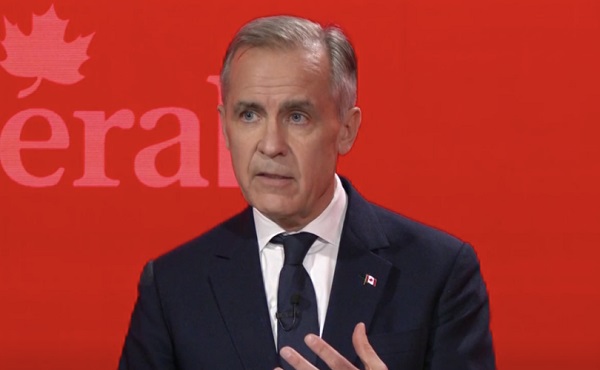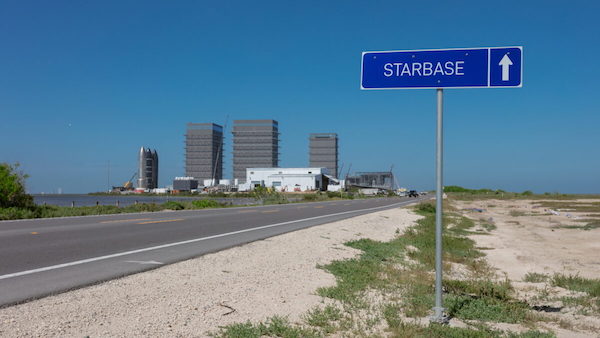Education
More money not the answer for schools—just look at Alberta

From the Fraser Institute
If you didn’t already know, higher government spending on schools doesn’t necessarily produce better results. Just look at what’s happening in Alberta.
According to Statistics Canada, from 2012/13 to 2021/22 (the latest year of available data), per-student spending in Alberta increased by 2.1 per cent from $13,146 to $13,421. After adjusting for inflation, this amounted to a 17.2 per cent spending reduction.
This stands in sharp contrast to most other provinces. During the same 10-year period, inflation-adjusted per-student spending increased in Quebec (by 24.6 per cent), British Columbia (5.1 per cent) and Ontario (0.5 per cent). By the raw numbers, Alberta now spends less per student than any other province.
The results?
According to the latest Programme for International Student Assessment (PISA) tests, Alberta students scored second only to Quebec on their math skills and almost half a grade level ahead of their peers in B.C. (even though B.C. spent $1,468 more per student in 2021/22). Even better, Alberta students scored highest in the country on their PISA reading and science assessments. This is exactly the opposite of what we’d expect if less spending hurt student performance.
Of course, this doesn’t mean that money is irrelevant. In countries that spend considerably less on education than Canada, more spending does correlate with better academic results. Excessive teacher turnover harms student learning and students must be in a stable learning environment to excel. If teachers aren’t paid enough to make a decent living, they will not remain in the profession, and students will suffer.
However, things are quite different in Canada where all provinces including Alberta already spend a significant amount on education. Governments should spend more wisely rather than simply pour more money into the education system.
Since Alberta is a top-performing province, it’s worth asking what makes this province different. Simply put, Albertans have more educational choice than any other province. Not only does Alberta have fully-funded public and separate school systems, accredited independent schools receive 70 per cent of per-student grants available to public schools, which makes it easier for independent schools to keep tuition affordable for parents. And it’s the only province to allow charter schools, which are fully-funded public schools that operate independently from government school boards. This makes it easier for charter schools to offer specialized programming based on parental demand and creates an incentive for government school boards to diversify their programming options.
Alberta also has a rigorous standardized testing program. Grades 6 and 9 write provincial achievement tests in English language arts, math, science and social studies. Meanwhile, Grade 12 students write diploma exams in a variety of courses that are worth 30 per cent of their final mark. These tests and exams play an important role in holding schools accountable.
However, before Alberta politicians get too comfortable, it’s important to note that Alberta, despite its relative success compared to other provinces, saw a significant decline in academic achievement over the last 20 years. The latest PISA tests show that Alberta students declined in their math skills by 45 points from 2003 to 2022. To put this in perspective, PISA equates 20 points with approximately one grade level. In other words, Alberta students are (on average) approximately two years behind in their math skills than they were in 2003.
Getting to the root cause of this decline will take considerable effort. But one thing we know for sure—despite any rhetoric to the contrary, simply spending more money will not solve this problem. As another school year begins, policymakers in Alberta and across the country should keep this in mind.
Author:
Red Deer
Red Deer teacher one of 7 in Canada to receive National Award for Teaching Excellence in Physical Education

Scott Luck has been named as one of just seven recipients across Canada for the National Award for Teaching Excellence in Physical and Health Education presented by Physical and Health Education Canada
Whether it’s leading high-energy gym classes or helping students discover their passion for physical activity, PhysEd Specialist at École Central Middle Scott Luck has always focused on getting kids moving – and now, he’s being recognized for his efforts on a national level.
Scott has been named as one of just seven recipients across Canada for the National Award for Teaching Excellence in Physical and Health Education presented by Physical and Health Education Canada. The award honours exceptional teaching and leadership in promoting wellness and physical literacy in schools.
“I didn’t know that I was being nominated – I was extremely surprised when I was told I was a recipient,” said Scott. “I just go about doing my day-to-day and for others to consider me in that type of category is a big honour.”
While he had not met the other recipients before the awards ceremony, Scott said he was humbled to be in their company.
“To be grouped together with the other recipients is such an honour. They are all amazing individuals who do amazing things,” he said.
Scott’s journey to education wasn’t typical. Initially being accepted into a combined PhysEd and Education degree right out of high school, he was steered away from the field. Years later in his 20s, he returned to his calling and earned his After Degree in Education from the University of Alberta. He landed his first teaching job at the age of 28.
He began his career in Edmonton and quickly came to Red Deer teaching at Hunting Hills High School before joining École Central Middle, where he’s spent the past eight years helping students discover the joy of movement.
“I love being active. I love seeing kids be active, and figure out what they are good at. It’s extremely rewarding,” said Scott.
He believes physical and mental wellness are key to student success. “In order for a student to excel academically, they have to be well. Wellness for me is all about the balance between being physically active, mentally well, and the pursuit of happiness,” he said.
Amanda Wilson, Principal at École Central Middle, said Scott is an exceptional Phys Ed teacher who creates inclusive, high-quality programs that cater to widely diverse student needs.
“He adapts lessons using translation tools, tactile clues, auditory signals, and specialized equipment, ensuring all students, regardless of ability or challenges, can participate and experience success,” she said. “Scott goes above and beyond regularly for his students and for our school in the classroom as well as with extracurricular activities. He is instilling a lifelong love of physical activity, and transforming his students’ lives with his dedication and creativity and we are incredibly fortunate to have him at CMS.”
Aristotle Foundation
The University of Saskatchewan is on an ideological mission

By Peter MacKinnon
The program is part of an ideological crusade within our universities, one that includes identity-based admissions and faculty appointments, and discourages those who differ from speaking out or taking issue with its direction.
It needs to end
I must disclose my background here; I was employed by the University of Saskatchewan for 40 years including 13 years as president. The institution’s distinctive origins combined the development of liberal education with a responsibility to build the province’s agricultural industry, and it did the latter with world-class agricultural programs and research institutes, and with faculty and students of many backgrounds from around the globe.
Now, we are told, the academic personnel in this worldly environment require mandatory training on racism: an Anti-Racism/Anti-Oppression and Unconscious Bias Faculty Development Program. It is compulsory; those who decline its offerings will be shut out of collegial processes previously thought to be their right as tenured faculty.
It was earlier reported that the program emerged from collective bargaining at the initiative of the university’s faculty union; if so, this does not relieve the administration from responsibility; it signed the collective agreement.
“Program” is a euphemism. It is a propaganda module in which scholarly expertise and balance will not be found. It does not appear that the instructor has a university academic post and the program’s ideological hue is revealed in the two required readings, one by Idle No More co-founder Sheelah McLean whose theme is that the success of Saskatchewan’s white people is built on “150 years of racist, sexist and homophobic colonial practices.”
The second is by five “racialized” faculty who claim that Canadian university systems are rigged to privilege white people. Dissent, contrary views or even nuance are neither expected nor tolerated here. Opinions that are different are not on the reading list.
One participant, a law professor, was invited to leave after 30 minutes because he did not lend his voice to its purpose and orientation; he revealed that he was present because it was required. The purpose of the program is indoctrination and there is no room for dissent.
The program is part of an ideological crusade within our universities, one that includes identity-based admissions and faculty appointments, and discourages those who differ from speaking out or taking issue with its direction.
It is not present to the same degree in all of these institutions, but it is visible in most and prominent in many. It disparages merit, distorts our history and rests on the proposition that a white majority population has perpetrated a wide and pervasive racist agenda against others. It takes its conclusions as self-evident and not requiring evidence. It is authoritarian and intolerant, and should have no place in institutions committed to excellence and the search for truth.
The question, of course, is what is to be done. There is a view that “this too shall pass;” it is a fad that will recede in time.
But we must note, these are public institutions supported by tax dollars, and by the contributions of time and money by alumni and supporters. We should not tolerate their politicization and sidetracking of the academic mission in favour of the ideology on display here. The pushback should begin with governments and extend to others who care about these vital institutions.
But first the ideology must be recognized. There is no public uproar and little clamour from within the institutions; dissenting professors and students fear that negative professional and personal repercussions may follow. University-governing bodies stand down or away, not wanting to be involved in controversy. Resistance must come from outside the institutions: governments must insist that the propaganda must end, and they should be joined by alumni, supporters and the general public. The credibility of our universities depends on their willingness to say no.
Peter MacKinnon has served as president of three Canadian universities and is a senior fellow at the Aristotle Foundation for Public Policy. Photo: WikiCommons
-

 Alberta1 day ago
Alberta1 day agoPremier Smith seeks Alberta Accord: Announces new relationship with Ottawa
-

 Energy1 day ago
Energy1 day agoIt’s time to get excited about the great Canadian LNG opportunity
-

 International1 day ago
International1 day agoIce Surprises – Arctic and Antarctic Ice Sheets Are Stabilizing and Growing
-

 Crime1 day ago
Crime1 day agoInside B.C.’s Cultus Lake Narco Corridor — How Chinese State-Linked Syndicates are Building a Narco Empire in Canada
-

 Energy1 day ago
Energy1 day agoIs the Carney Government Prepared to Negotiate a Fair Deal for the Oil, Gas and Pipeline Sectors
-

 Alberta1 day ago
Alberta1 day agoEnergy projects occupy less than three per cent of Alberta’s oil sands region, report says
-

 Health1 day ago
Health1 day agoJay Bhattacharya Closes NIH’s Last Beagle Lab
-

 Business1 day ago
Business1 day agoWelcome to Elon Musk’s New Company Town: ‘Starbase, TX’ Votes To Incorporate



